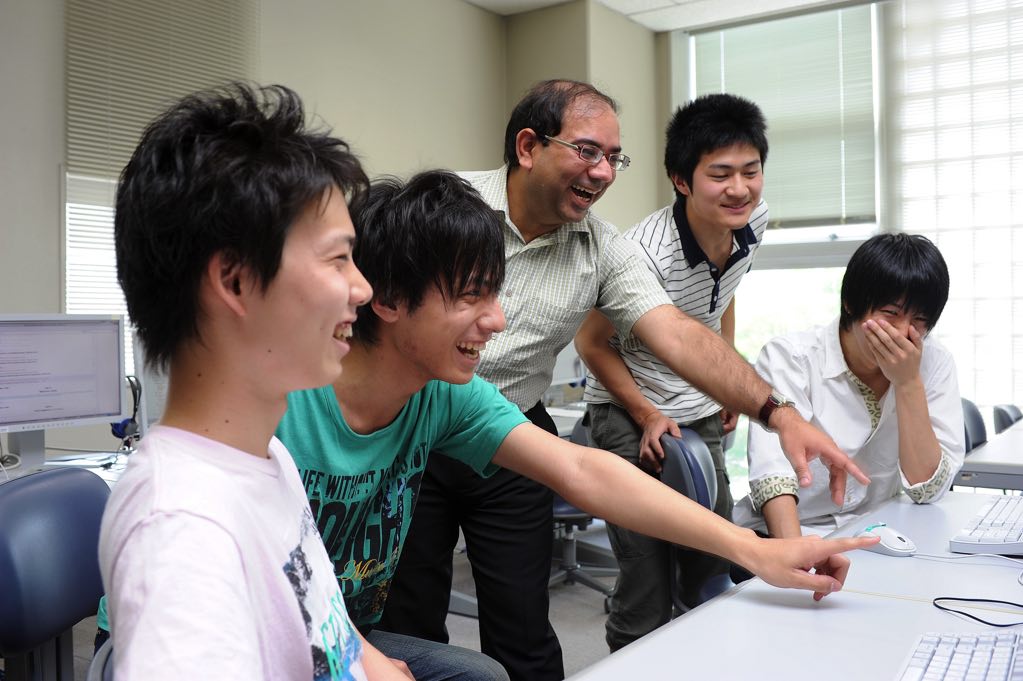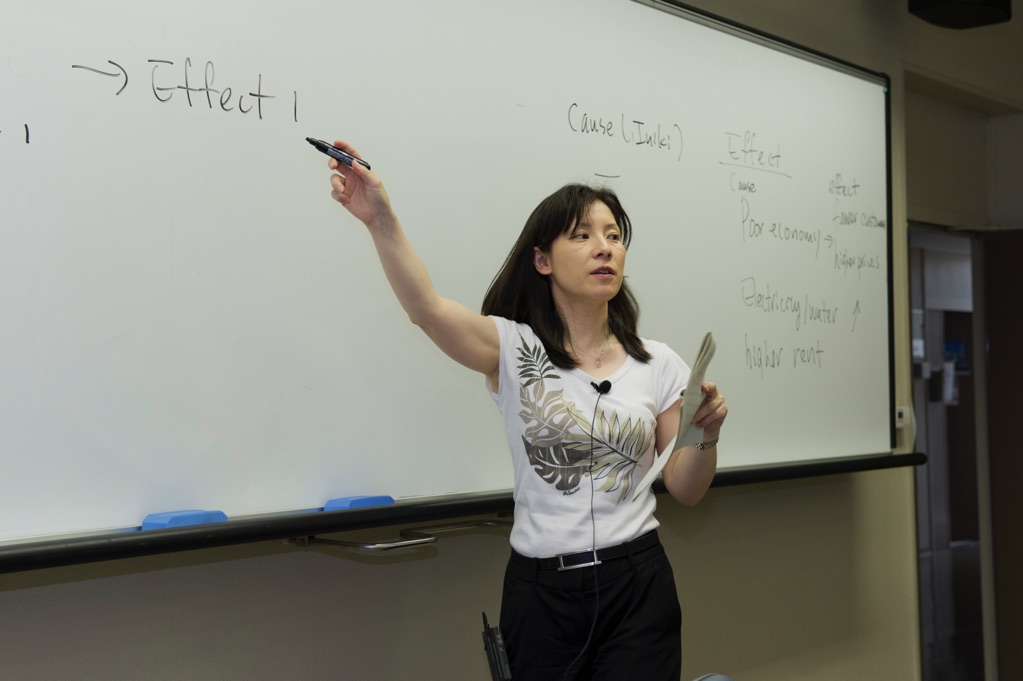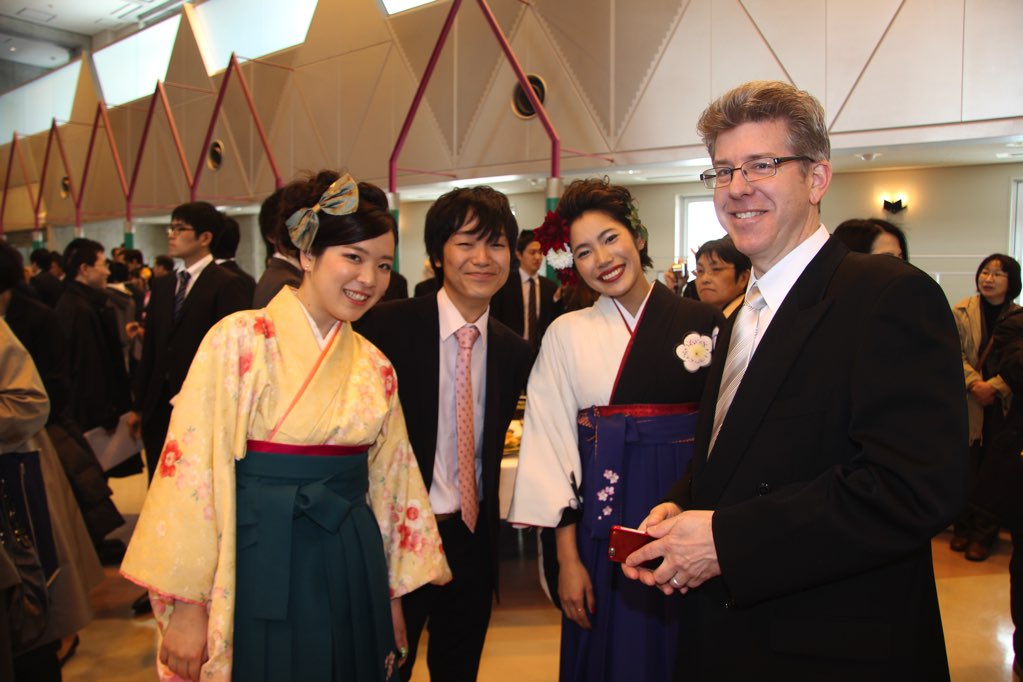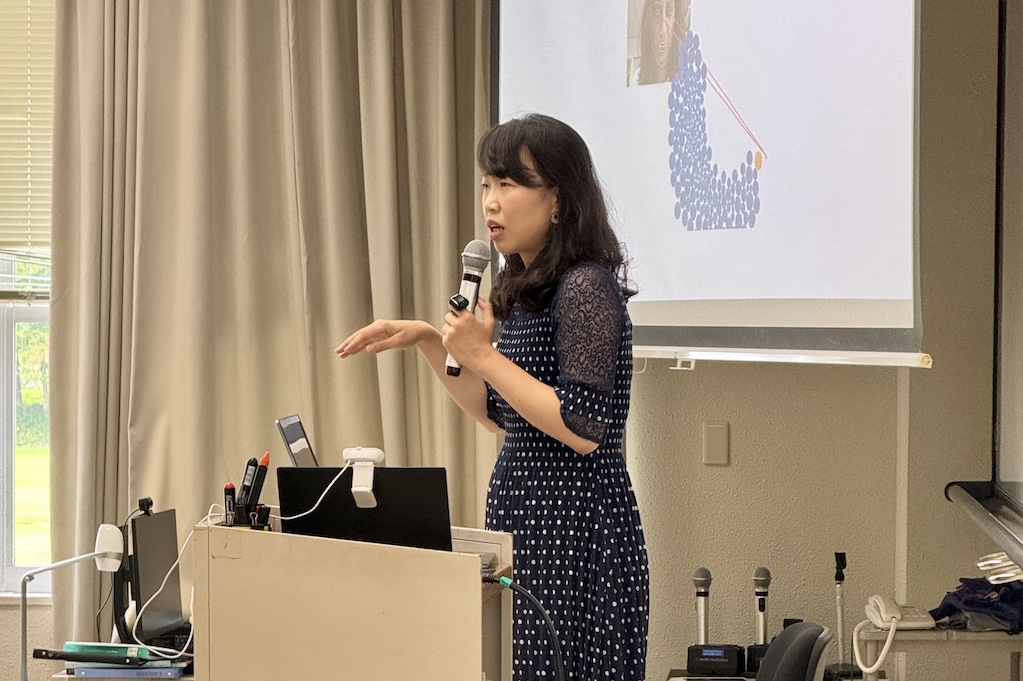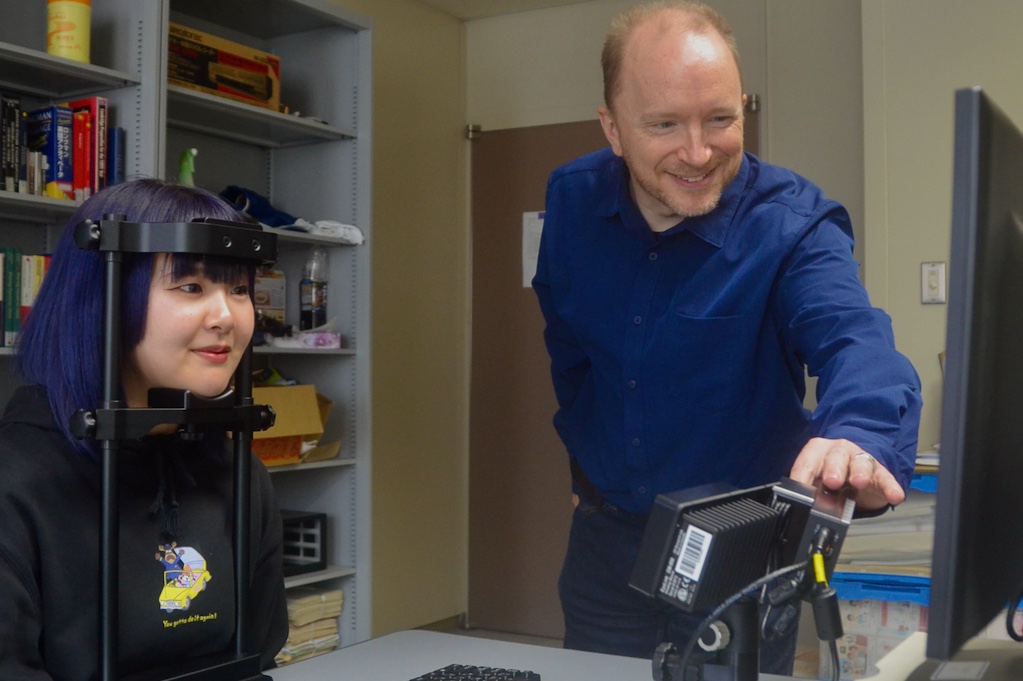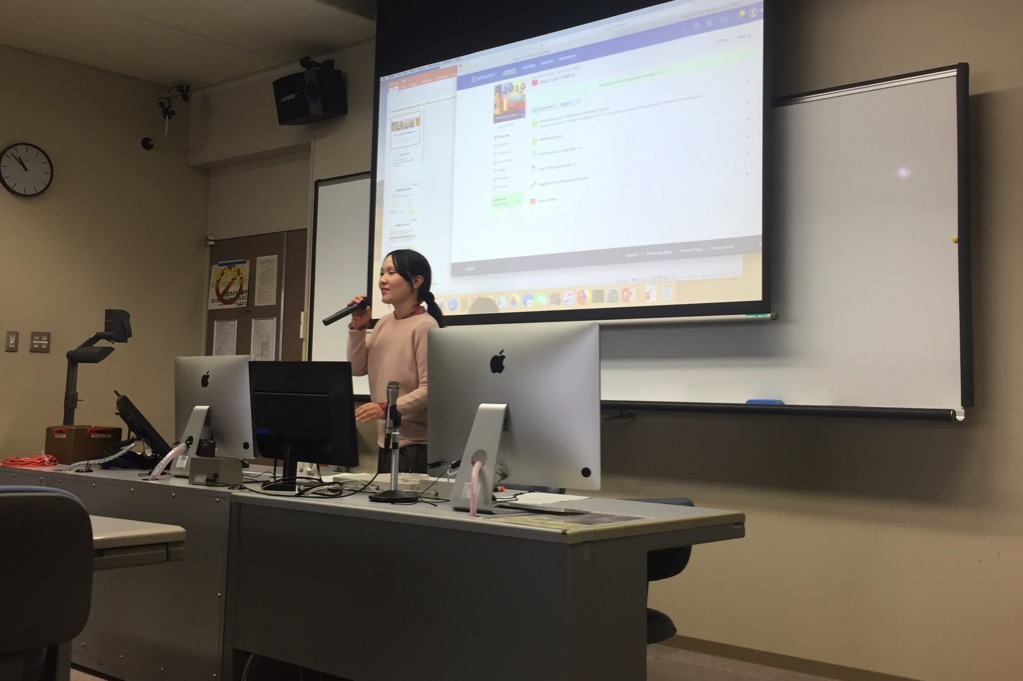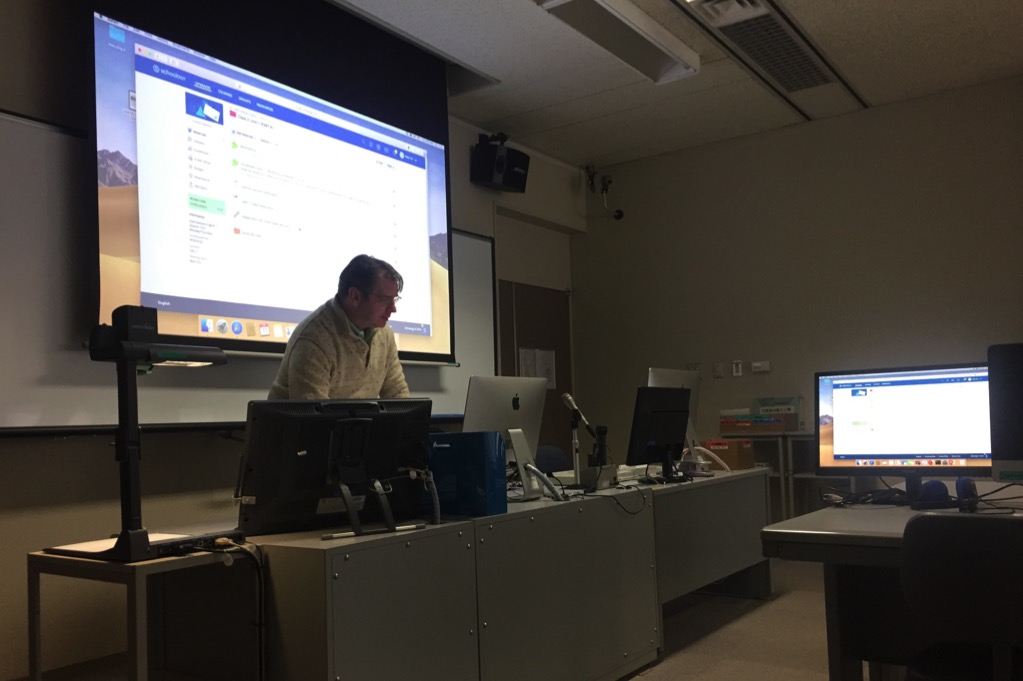About the CLR
The Center for Language Research (CLR) was established the same year as the University of Aizu (1993) to foster research in English for Specific Purposes with special emphasis on the English needed for study and work in computer science and engineering. In addition to our research, professors in the CLR help students to improve their English in all four of the traditional skills: listening, speaking, reading, and writing.
Mission Statement: In the CLR, we aim to carry out innovative research in linguistics and language learning, and use our findings to inform our teaching in the classroom. We help our students become effective communicators in both general English and English-for-specific-purposes (ESP), allowing them to usefully and enjoyably interact with those from other cultures in academia, in their future professional roles as computer scientists or engineers, and in everyday life. Through the English language we encourage our students to engage in mutual learning and understanding with those from other cultures and communities. The CLR aims to promote an attitude towards language learning in which English is seen not just as a subject to be learned, but also as a source of enjoyment and knowledge. In this way, we seek to enable our students to become confident and valued members of a globally-connected world.
Since the University of Aizu was the very first university in Japan solely dedicated to computer science and engineering, the over 1000 undergraduate (BSc) students and over 200 graduate (MSc & PhD) students all major in areas related to computer science. The university is known for its open access to computers; there is at least a 1:1 ratio of computers to students, and all students have 24-hour on-site computer and wireless internet access. And because over 40% of all faculty members come from overseas, including countries such as China, Russia, India, Korea, Vietnam, Egypt, France, Tunisia, Canada, Australia, New Zealand, the United States, and others, many of the courses are taught in English, so it is necessary for students to be able to communicate well in English. We in the CLR help students to accomplish that goal.
The University of Aizu is officially bilingual and all business meetings and correspondence are interpreted and translated in both Japanese and English. As mentioned above, English language education is a very important aspect of the University of Aizu. Not only do students enroll in English-as-a-Foreign-Language (EFL) courses with the CLR throughout their undergraduate programs, but many of their computer science courses are also taught in English. All undergraduate students are required to write and present a senior thesis in English, and all theses at the graduate level are also written and presented in English. The university has numerous international students at all levels who carry out their work in English. In fact, in the ICT Global Program: All-English Course, it is possible for undergraduate students to obtain all their degree credits in English!
In April 2022, a new CLR curriculum was implemented for all first-year English courses. This curriculum was designed by Prof. Allan Nicholas and former Prof. Stuart Benson, following a linguistic needs analysis to ascertain what students lack, want, and need in their English language learning. The new curriculum applies Nation's (2012) Four Strands approach, focusing on meaning in the four skills (reading, writing, listening, and speaking), on specific language aspects such as learner strategies and vocabulary, and on developing fluency in the four skills.
This curriculum for the first-year courses has four primary goals: (1) To enable students to become effective independent English language learners, (2) To develop and solidify learners' ability to understand and use high frequency English language items, (3) To increase learners' English fluency, enabling them to use the English language knowledge they have more quickly and smoothly, and (4) To introduce learners to English language-based tasks connected to their needs in academic and daily life, and give them the knowledge and skills necessary to perform these tasks effectively.
Introductory English 1 and 2 taught in the first semester focus on more familiar topics and vocabulary to provide learners the opportunity to build upon their existing knowledge of English, as well as introduce language items essential to their future learning in tertiary-level academia. Bridge 1 and 2 to Intermediate English taught in the second semester require learners to apply this knowledge to more complex topics, activities and tasks in preparation for second-year English courses.
